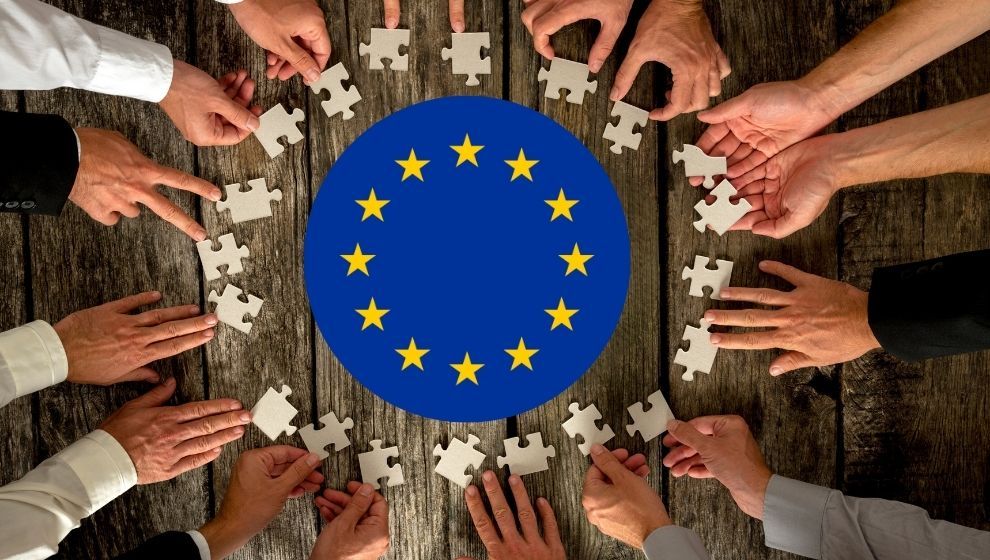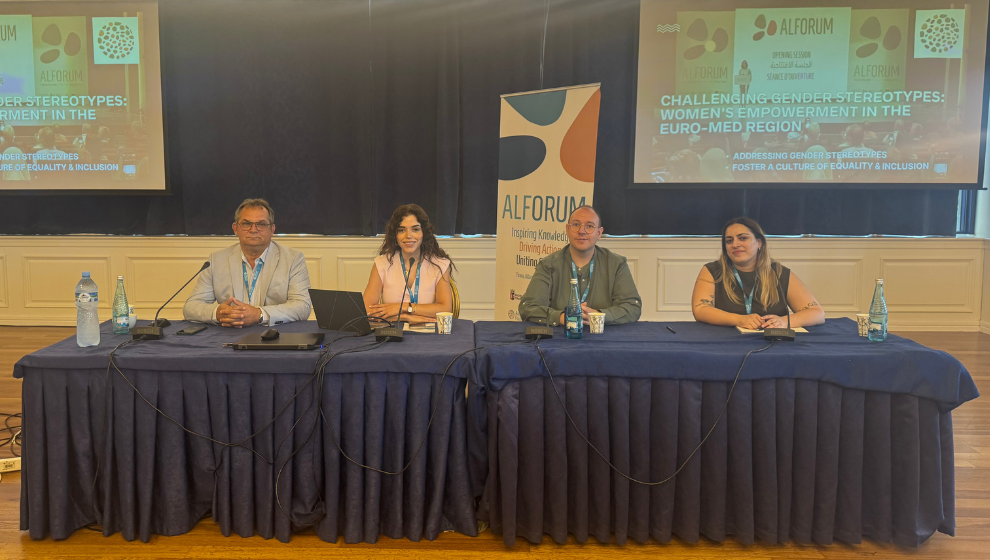Stronger Together: Understanding the Role of Synergies for Advancement of Change


As the saying goes: if you want to go fast – go alone, if you want to go far – go together. The same principle applies to synergies in the context of European-funded projects. That’s why collaborations between initiatives and organisations have been celebrated and pursued for their enhanced effectiveness and efficiency. Synergies serve as an opportunity to holistically address societal, entrepreneurial, environmental, educational and well-being challenges, as opposed to singling out just one of them through a specific initiative.
With the European Commission (EC) funding various projects across member states, spanning diverse sectors such as research and development, innovation, infrastructure, and social programs, it is more crucial than ever to look for opportunities to cooperate. From optimisation, knowledge sharing, connecting communities of practice, strengthening cooperation, and collectively advocating for necessary policy reforms, together initiatives can multiply their collective capacity to make a difference.
Synergy in Action
One exceptional example of such collaboration has been witnessed during the final OTTER conference in Brussels in February this year. The event brought together researchers, policymakers, teachers, STEAM educators, and EOC practitioners, served as a unique opportunity for an open dialogue to explore diverse perspectives on the perks of outdoor STEAM education and the promotion of Education Outside Classroom (EOC).
By sharing, showcasing and reflecting on multiple activities, deliverables and pursued actions, brought to the fore the broader context of over ten ongoing Erasmus+ and Horizon initiatives. ,including SMILE and EcoSTEAM, offering an extraordinary educational value to all of its attendees and organisers.
Reflecting back on this success, there were several reasons why partners around Europe and outside should consider this as a staple practice, especially in the field of education and teaching, including:
Optimising and Enriching Resources
Combining efforts allows for the optimal utilisation of financial and human resources. By sharing expertise, know-how and practices, all three projects can reduce the risk of duplication of efforts and costs. This efficiency is particularly important in maximising the impact of EU funding.
Enhancing Impact
Synergetic opportunities, such as the OTTER Final Conference, amplify the overall impact of projects by creating a more integrated and comprehensive approach to addressing common challenges. Sharing and exploring opportunities for collaboration through the conference’s World Cafe session led to innovative solutions, giving way to better results and a broader reach in the future, benefiting a larger segment of each project’s target audience.
Addressing Cross-cutting Issues
Many educational challenges European countries face cut across multiple domains, such as lack of resources and infrastructure, lack of professional development opportunities for teachers and educators, inflexible curricula and national education systems. Pursuing synergies allows projects to address these cross-cutting issues collectively, fostering a more holistic and integrated approach to problem-solving.
Promoting Knowledge Transfer
Collaboration facilitates the exchange of knowledge, best practices, and lessons learned between projects. This knowledge transfer can lead to accelerated progress, as successful strategies and innovations can be adopted and adapted across different projects and sectors. This is clearly evident among the projects presented through the conference that, besides their particularities (OTTER = Education Outside the Classroom, SMILE = Sustainable Mobility, EcoSTEAM: Innovative learning approaches) have noticeable overlaps between their overarching themes of coverage and complement each other serving as a rich bank of knowledge sharing
Strengthening European Cooperation
Synergies contribute to the broader goal of European integration by fostering cooperation and solidarity among member states. Shared goals and coordinated efforts contribute to a more cohesive and unified Europe.
Improving Policy Coherence
Collaborative efforts enhance policy coherence, ensuring that the outcomes of different projects align with overarching EU policies and objectives and, most importantly, lay the foundations for developing recommendations for policy reforms and propositions. Such endeavours facilitate the creation of a harmonised and effective approach to addressing common challenge.
Going Forward Together
With such outstanding success, synergies should be more and more common across European projects, especially when we discuss such high-profile events as final conferences. Instead of creating a stale ‘knower-learner’ dynamic, with the audience passively receiving the knowledge from the representative of the consortium, why not open doors to a more dynamic conversation?
All attending parties, institutions, partners, educators can benefit from a wider and larger conversation that can address a wider spectrum of challenges and opportunities from different standpoints. At the end of the day, by singling out initiatives, regardless of how great they are, we are running a risk of missing out on the collective efforts and results that none of initiatives could ever achieve alone.
If you want to find out more about the OTTER project go check its website
LATEST NEWS
 23/06/25
23/06/25
CARDET Participates in Regional Dialogue on Gender Equality at the Albanian Forum on Women Empowerment
On 20 June 2025, Foteini Sokratous, representing CARDET, participated in the panel discussion “Challenging Gender Stereotypes: Women’s Empowerment in the Euro-Med Region”, as part of...
Read more

Education, Innovation, and Impact: Dr. Charalambos Vrasidas at the Cyprus Diaspora Forum 2025
CARDET proudly participated as a sponsor of the Cyprus Diaspora Forum 2025, a landmark event that brought together members of the Cypriot diaspora to explore...
Read more

Κική Καλλή: Το έργο Teamwork 2, η σημασία και οι στόχοι του
Η σεξουαλική παρενόχληση στον χώρο εργασίας παραμένει ένα κρίσιμο ζήτημα στην Ευρωπαϊκή Ένωση, επηρεάζοντας τόσο τα στελέχη όσο και τους οργανισμούς. Το έργο TEAMWORK 2,...
Read more